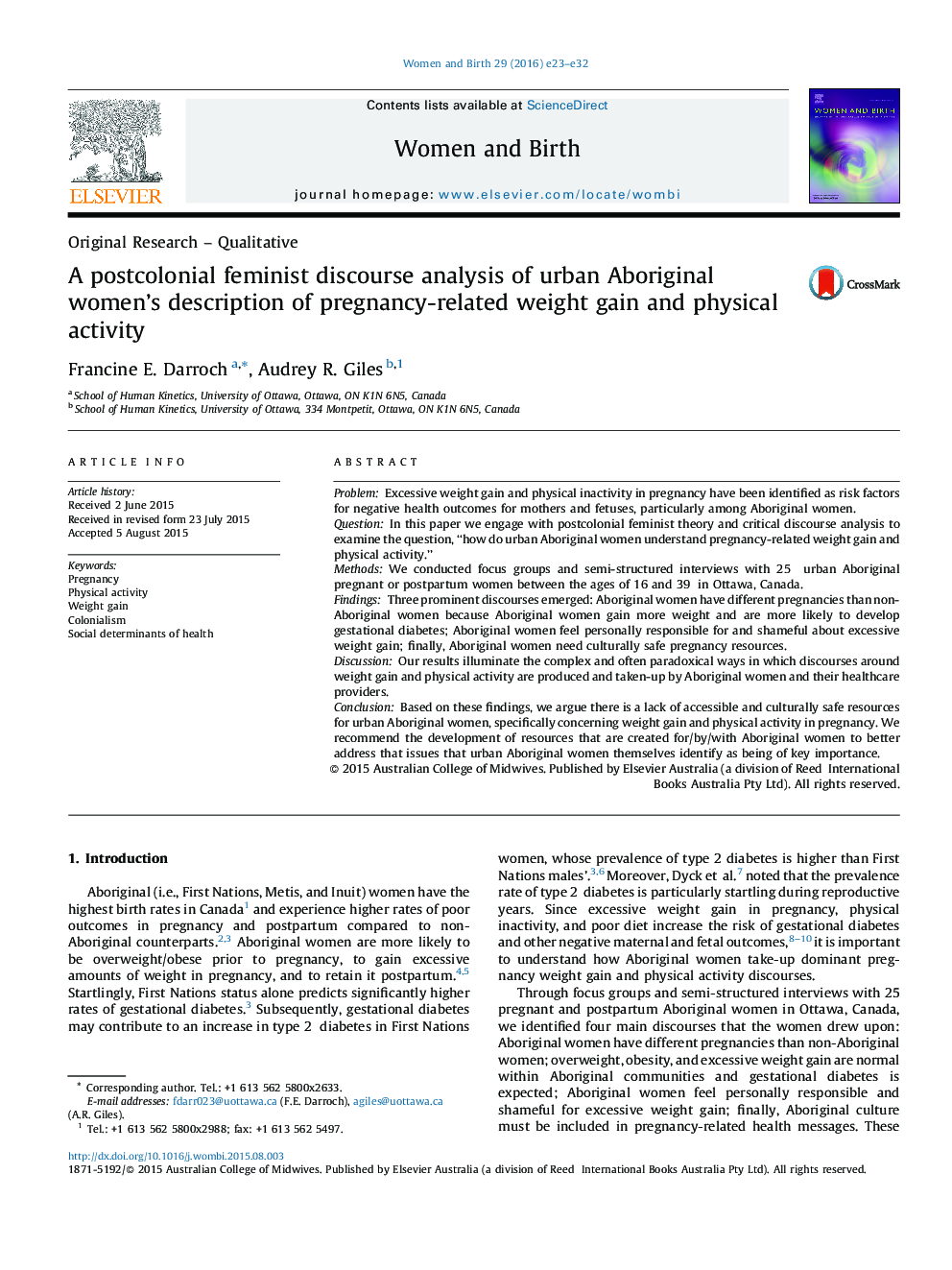| Article ID | Journal | Published Year | Pages | File Type |
|---|---|---|---|---|
| 2636450 | Women and Birth | 2016 | 10 Pages |
ProblemExcessive weight gain and physical inactivity in pregnancy have been identified as risk factors for negative health outcomes for mothers and fetuses, particularly among Aboriginal women.QuestionIn this paper we engage with postcolonial feminist theory and critical discourse analysis to examine the question, “how do urban Aboriginal women understand pregnancy-related weight gain and physical activity.”MethodsWe conducted focus groups and semi-structured interviews with 25 urban Aboriginal pregnant or postpartum women between the ages of 16 and 39 in Ottawa, Canada.FindingsThree prominent discourses emerged: Aboriginal women have different pregnancies than non-Aboriginal women because Aboriginal women gain more weight and are more likely to develop gestational diabetes; Aboriginal women feel personally responsible for and shameful about excessive weight gain; finally, Aboriginal women need culturally safe pregnancy resources.DiscussionOur results illuminate the complex and often paradoxical ways in which discourses around weight gain and physical activity are produced and taken-up by Aboriginal women and their healthcare providers.ConclusionBased on these findings, we argue there is a lack of accessible and culturally safe resources for urban Aboriginal women, specifically concerning weight gain and physical activity in pregnancy. We recommend the development of resources that are created for/by/with Aboriginal women to better address that issues that urban Aboriginal women themselves identify as being of key importance.
